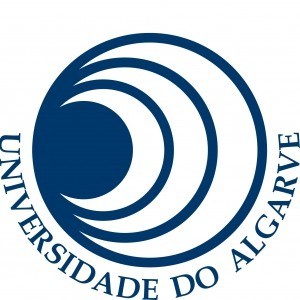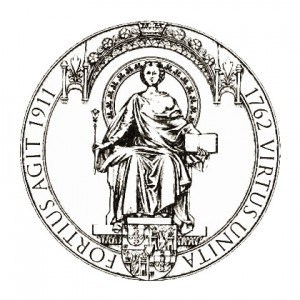Photos of university / #ualg_universidadedoalgarve
Tourism Economics and Regional Development at the University of Algarve offers a comprehensive educational experience designed to equip students with in-depth knowledge of the tourism sector, economic analysis, and regional development strategies. This program aims to prepare graduates to understand the complex dynamics of tourism markets, evaluate regional tourism policies, and contribute to sustainable economic growth within various regions. The curriculum combines foundational economic theory with specialized courses in tourism management, regional planning, and development economics, ensuring students acquire both analytical skills and practical insights. Throughout the program, students engage in case studies, data analysis, and project work that foster critical thinking and problem-solving abilities relevant to the tourism industry and regional planning contexts. The program emphasizes sustainability, innovation, and strategic thinking, reflecting current trends and challenges in the tourism sector. Partnering with local and international organizations, the university provides opportunities for internships and real-world applications, enabling students to gain valuable practical experience. Graduates are prepared for careers in public administration, private tourism companies, consultancy firms, and regional development agencies, where they can design policies, develop tourism projects, and contribute to regional economic strategies. With a focus on regional development, the program also explores issues related to spatial planning, socioeconomic impacts of tourism, and the promotion of sustainable regional growth. The multidisciplinary approach ensures that students develop a broad understanding of the economic, social, and environmental factors that influence tourism and regional development. The program is delivered by experienced faculty members with expertise in tourism economics, regional planning, and economic development, providing students with a high-quality education rooted in current academic research and industry practices. Graduates will be well-equipped to analyze and promote sustainable tourism initiatives that support regional prosperity, cultural preservation, and environmental conservation. This master's program is ideal for individuals passionate about shaping the future of tourism and regional development, combining theoretical foundations with practical applications to meet the demands of a rapidly evolving industry.
The Tourism Economics and Regional Development program at the University of Algarve offers a comprehensive curriculum designed to prepare students for a dynamic and evolving industry. This interdisciplinary program combines principles of economics, regional planning, and tourism management to provide students with a deep understanding of how tourism impacts regional economies and development strategies. Throughout the course, students will explore key topics such as tourism market dynamics, economic valuation of tourism activities, regional development policies, sustainable tourism practices, and the social and environmental impacts of tourism. The program emphasizes the importance of data analysis, economic modeling, and policy formulation to foster sustainable growth in tourism-dependent regions. Coursework includes lectures, case studies, fieldwork, and projects that enable students to apply theoretical knowledge to real-world scenarios. Students will also have the opportunity to engage with industry professionals through internships and seminars, gaining practical experience and insights into current trends and challenges facing the tourism sector. The curriculum is particularly focused on regional development, equipping graduates with the skills to analyze regional tourism potentials, design sustainable development plans, and contribute to policy-making processes. Graduates of this program will be well-prepared for careers in regional planning agencies, tourism boards, consulting firms, and government departments dedicated to tourism and regional development. They will also be equipped with research skills applicable to academic, governmental, and private sector roles. The program aims to develop professionals who can balance economic growth with environmental sustainability and social inclusion, ensuring that regional development strategies are both effective and responsible. Overall, the Tourism Economics and Regional Development program at the University of Algarve offers a robust and specialized education that combines economic analysis, regional planning, and sustainable tourism principles, preparing students to become leaders in the tourism industry and regional development sectors.
Program requirements for the Tourism Economics and Regional Development Master's Degree at the University of Algarve typically include a completed undergraduate degree in a relevant field such as Economics, Geography, Tourism Studies, or a related discipline. Candidates are generally required to submit proof of English language proficiency through standardized tests like IELTS or TOEFL, unless their previous education was conducted in English. A curriculum vitae outlining academic background and relevant experience must be provided, along with a motivation letter explaining the applicant’s interest in the program and career objectives. Additionally, applicants might need to submit letters of recommendation from academic or professional references who can attest to their suitability for graduate-level studies. The selection process considers academic performance, work experience related to tourism or regional development, and the applicant’s motivation. Some programs may also include an individual interview, either in person or via video conference, to assess the applicant’s communication skills and motivation. Applicants are advised to review specific admission requirements on the official university website for the most accurate and detailed information, as requirements may vary slightly from year to year. The program emphasizes analytical skills, economic modeling, and understanding of regional dynamics, so prior coursework or experience in these areas could strengthen an application. It is recommended that prospective students prepare all documentation carefully and submit their applications before the specified deadline to be considered for admission. The university offers guidance and support throughout the application process to ensure prospective students meet all criteria and understand the expectations of the program.
Funding options for the Tourism Economics and Regional Development master's program at the University of Algarve include a variety of scholarships, grants, and financial aid opportunities designed to support both domestic and international students. The university offers government-funded scholarships for students from Portugal and the European Union, which may cover partial or full tuition fees, and are awarded based on academic merit, financial need, or specific criteria related to the student's background or research interests. Additionally, there are several scholarship programs managed by the university itself, such as the university merit-based scholarships, which reward high-achieving students through competitive selection processes. International students may also benefit from external funding sources, such as scholarships offered by their home countries, international organizations, or private foundations that support studies in economics, regional development, or tourism.
The University of Algarve encourages students to seek external funding opportunities, including Erasmus+ mobility grants, which facilitate student exchanges within Europe and can provide financial support for study periods abroad. Moreover, students enrolled in research projects or internships connected to regional development and tourism may access specific funding aimed at supporting practical training components, fostering their professional development and reducing overall financial burdens.
Part-time work opportunities are also available to students on campus or within the local community, providing additional income while pursuing the degree. The university provides guidance services that assist students in navigating the various funding avenues and preparing the necessary documentation for scholarship applications. Overall, while detailed, program-specific funding information may vary yearly, students are encouraged to consult the university’s official scholarships and funding pages or contact the university’s student financial services for the most current and comprehensive information.
The MSc in Tourism Economics and Regional Development at the University of Algarve offers students a comprehensive understanding of the economic principles and regional policies that shape the tourism industry within various geographic contexts. This program is designed for individuals interested in analyzing the economic impact of tourism on local and regional economies, as well as developing strategic approaches to foster sustainable tourism development. Throughout the course, students engage with a diverse set of subjects, including economic analysis, regional planning, sustainable development, and tourism management. The curriculum combines theoretical foundations with practical case studies, enabling students to acquire analytical skills essential for evaluating tourism policies and strategies. The program also emphasizes the importance of regional development and the role of tourism as a driver of economic growth, integration, and employment in different areas. Students have the opportunity to collaborate with local industry stakeholders and participate in projects that address real-world challenges related to tourism and regional development. The university's location in the Algarve, a renowned tourist destination, provides a unique advantage for experiential learning and practical exposure. Graduates of the program are well-prepared for careers in tourism planning, economic development agencies, regional governments, consultancy firms, and international organizations dedicated to sustainable tourism initiatives. The program typically offers a combination of taught courses, seminars, and research projects, supported by faculty with expertise in tourism, economics, and regional planning. This postgraduate degree aims to develop critical thinking, research capabilities, and policy analysis skills, fostering graduates capable of contributing effectively to the sustainable and inclusive development of tourism destinations worldwide. The program duration is generally one to two years, depending on whether students pursue it on a full-time or part-time basis.








